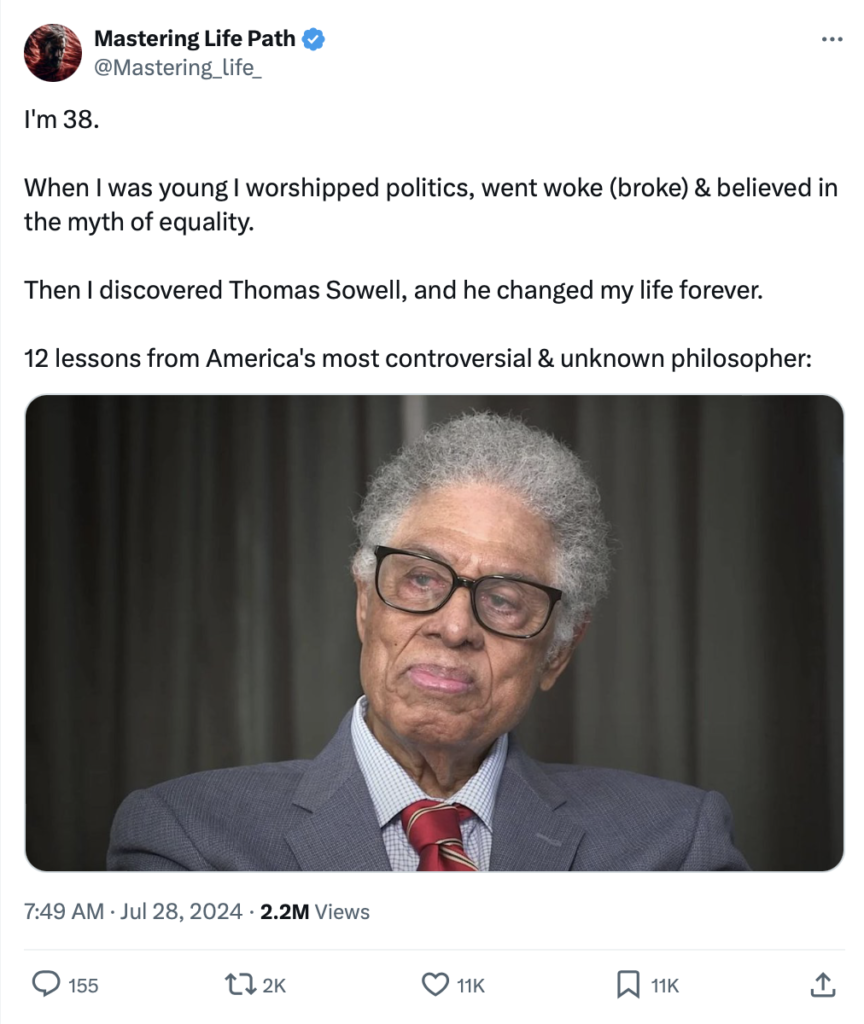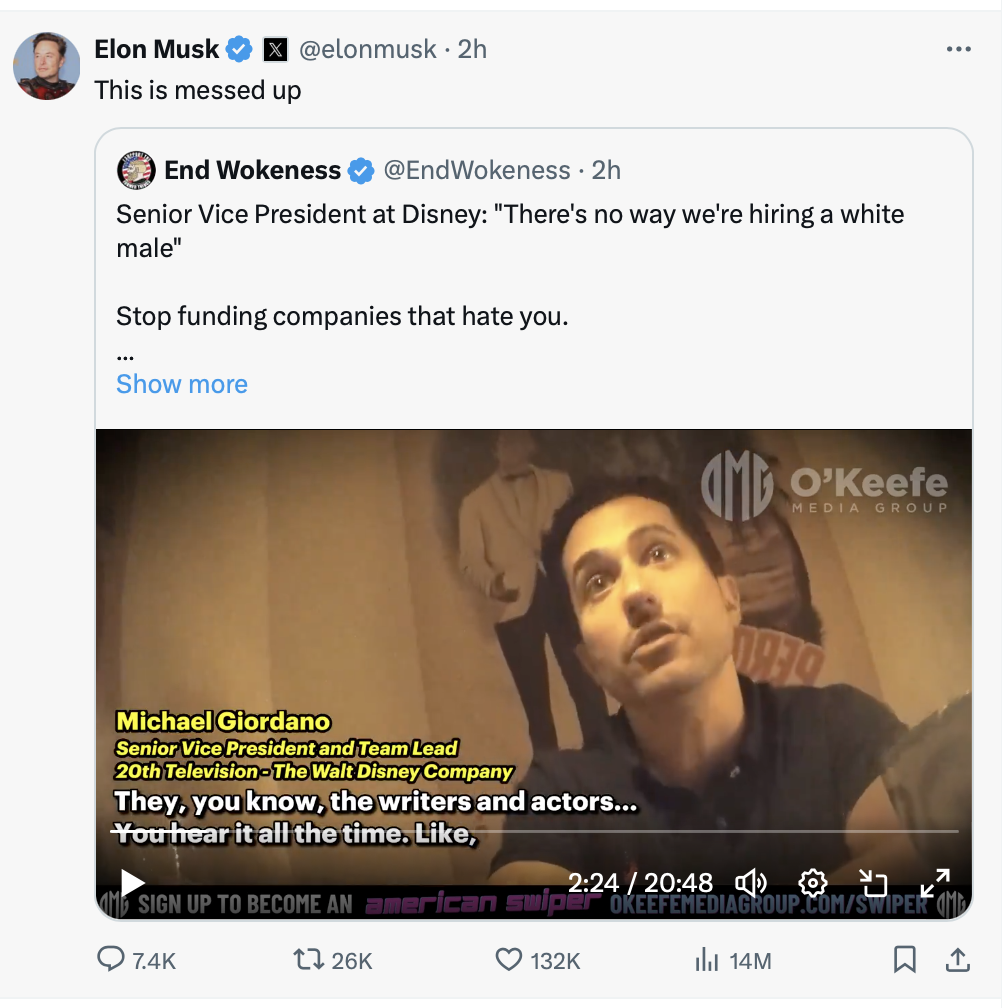Thomas Sowell Quotes
Excellent collection of quotes by economist Thomas Sowell:
Here are a few of my favorites:
"Intellect is not wisdom”
“When you want to help people, you tell them the truth. When you want to help yourself, you tell them what they want to hear.”
"The truth is often not complicated. What gets complex is evading the truth.”
"The problem is that Johnny doesn't know what thinking is. He confuses it with feeling”
“The great escape of our times is escape from personal responsibility for the consequences of one’s own behavior.”
“When people get used to preferential treatment, equal treatment seems like discrimination.”
"There's now a world in which the success of others is a grievance, rather than an example"
“Since this is an era of 'fairness' & 'social justice... what is your 'fair share' of what someone else has worked for?”
"One of the most important reasons for studying history is that virtually every stupid idea that is in vogue today has been tried before and proved disastrous before, time and again.”


